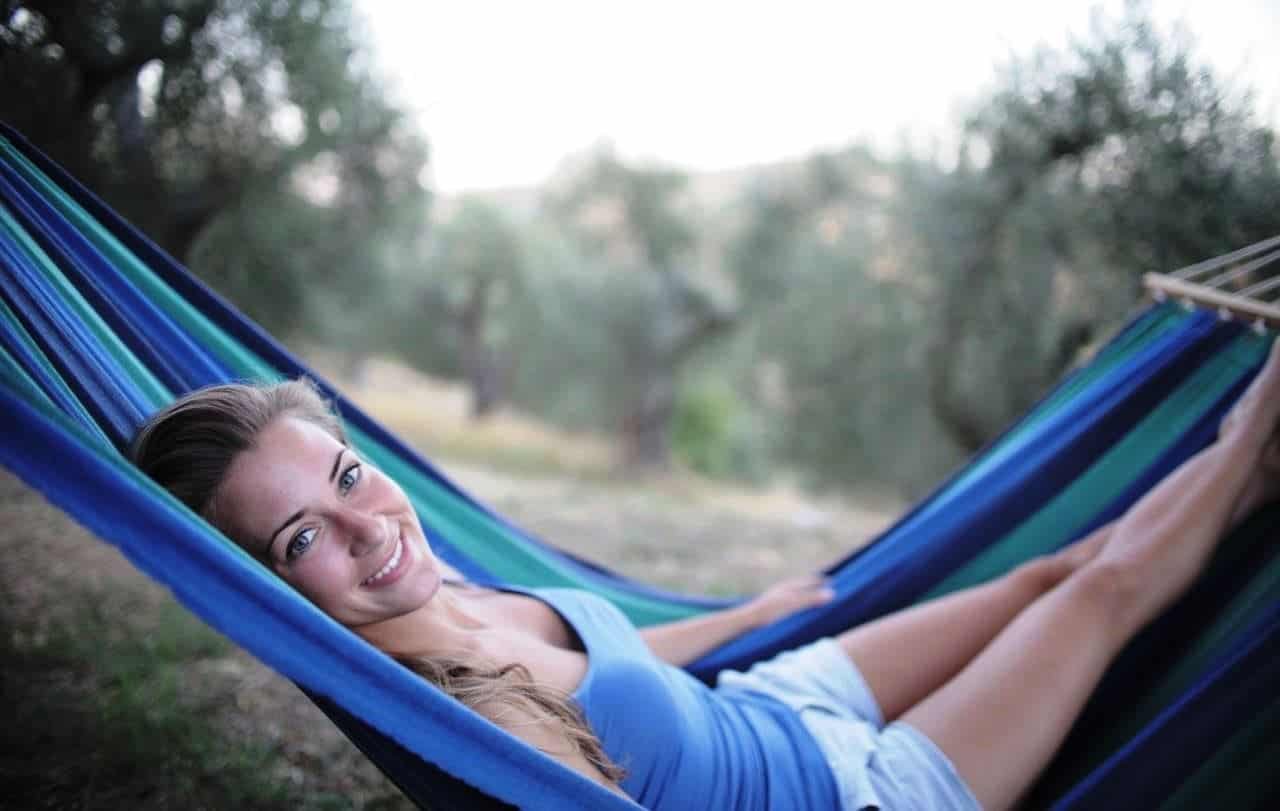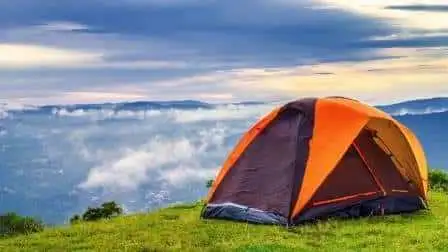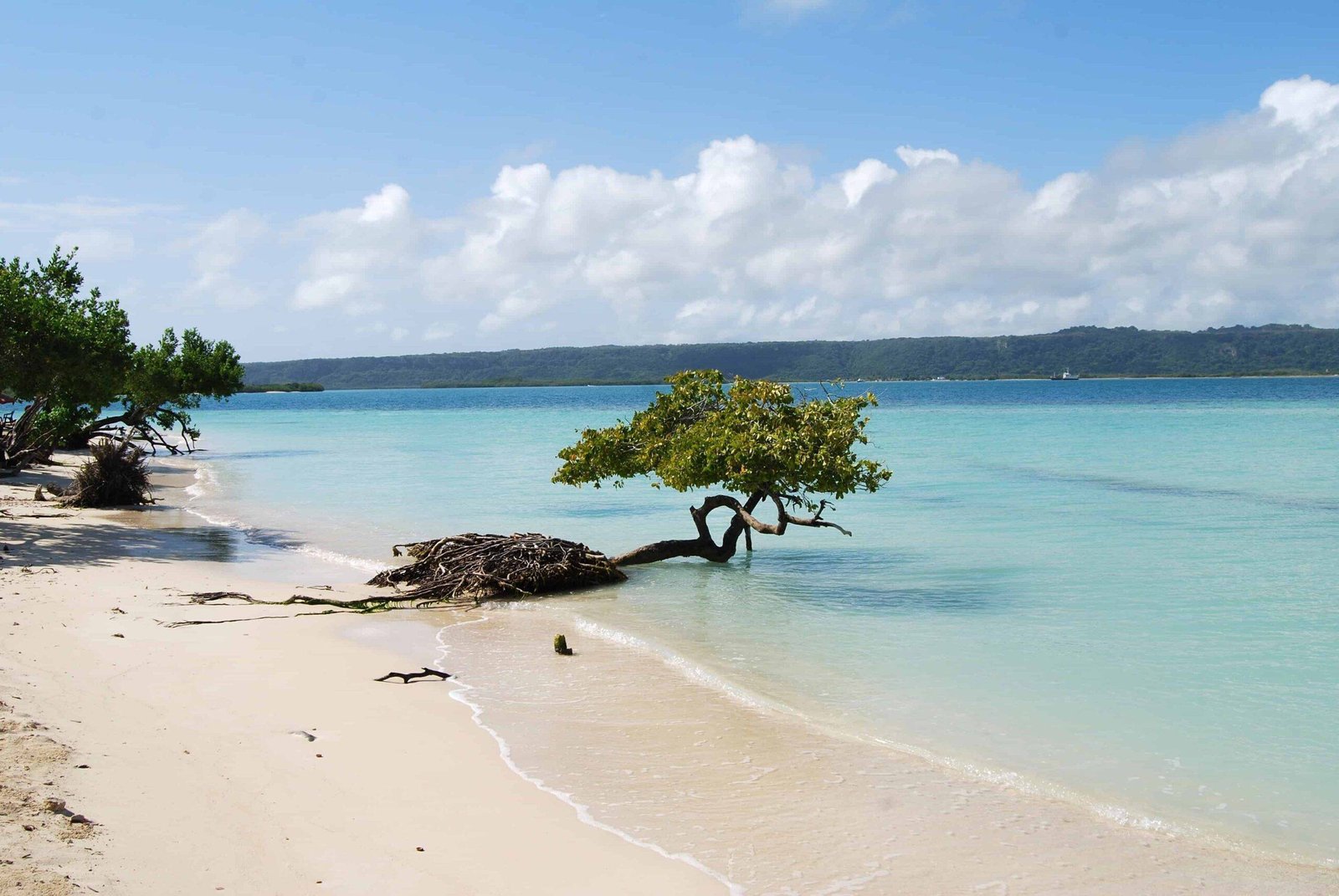Do you have a big family and want to go camping? Sounds like you’re in the right place! The first step is selecting a date for your trip. Popular summer dates include Memorial Day Weekend, Fourth of July Weekend, and Labor Day Weekend.
To avoid hiking during snow or wet days, we recommend November through February. Once you’ve selected a date and location, it’s time to start exploring campsites and reserving one for your family. You can find great camping reservations online or on the phone. Either way, eventually you’ll catch the attention of someone who can help you with your questions.
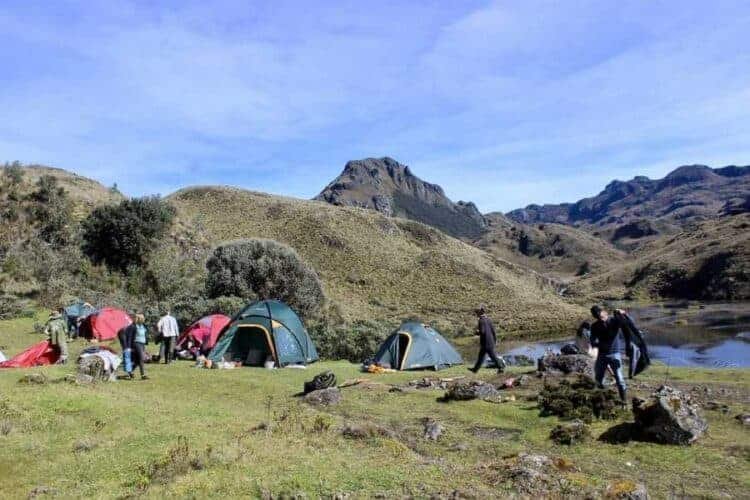
Image Source: pixabay.com
A typical camping trip includes packing up tents, sleeping bags, cooking utensils, food, and other supplies to last for several days. Always remember for a large family camping trip, you will need extra large camping tents and even more supplies.
If you are going on an extended camping trip with your large family – say seven or more people – it’s best to have two cars. That way you can take everything you need in one car while someone else drives the other to the campsite or cabin that you’ve chosen.
If you decide on a lake cabin instead of a campsite, they typically come fully furnished and stocked with food and supplies so you don’t have to worry about bringing those along. That also helps to cut down on the amount of space needed in your car for transporting supplies.
A common mistake when traveling with a larger family is to forget about where you are going to sleep. When you are camping in a tent, everyone needs their own sleeping bag. If you don’t bring your own, you will have to rent them at the campsite, or just sleep on top of the sleeping bags that are provided by the campground.
To avoid confusion, assign each person their sleeping pad or air mattress so they can bed down in private. If you do not share a tent and instead opt for a three-person tent, you will want to get one of the larger tents so everyone can be comfortable.
Things to bring on your camping trip
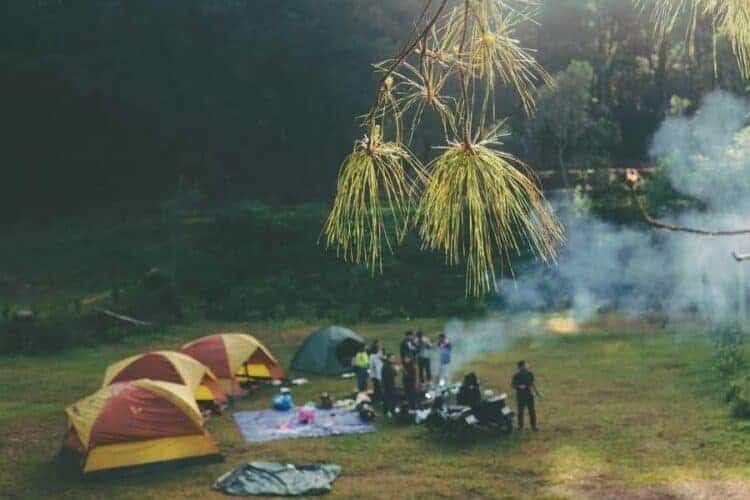
Image Source: pixabay.com
First-Aid kit – a few bandages and antiseptic wipes, tweezers and scissors, a thermometer to take temperature, small scissors for cutting out a splinter, sunscreen, and bug spray – even before you leave home. Make sure to check the expiration dates of medications stored in your backpack or car.
Flashlight – if it gets dark, don’t forget that you need some light as well as a dedicated flashlight that will shine into the tent at night.
Sleeping bag, sleeping pad, and a travel pillow – save money by only bringing one of these along instead of two.
Folding chairs– are a nice addition to your camping trip when your children want to sit in a chair and have a snack or dinner outside.
Dishpan, washcloth, garbage bags – you may not always be eating with the campfire. These can all come in handy when washing dishes and cleaning up after meals.
Two-way Radios – for emergencies.
Extra Snacks and Water – save money by bringing along extra snacks and water in case you get hungry early in the day, or if the weather turns bad and you decide to stay at home for breakfast, lunch, or dinner.
Map – if you don’t know the area, make sure to bring along a map.
Compact mirror – if you want to check your face for scratches, bug bites, or any other blemishes before you meet up with the rest of the family on your camping trip.
Compass – to help find your way back to wherever you parked your car at night; especially when it is dark and rainy outside.
Compact Binoculars – if you want to see wildlife like deer on your camping trip; binoculars will be handy.
Matches – matches are always good to have on hand; even if your camping trip is not at a campsite where you can start a fire.
Camera – the best way to remember your camping trip is to take lots of photos.
Pocket Knife – if you are staying in a campground or at a cabin, this will come in handy for cutting string, opening packages, slicing veggies, etc.
Duct tape – to repair your gear if it gets damaged.
Sunglasses – if you’re going to be outside while it’s bright while you’re camping.
Change of clothes for each family member – if you plan on being out all day hiking and exploring the area.
Sunscreen – even though the sun is no longer shining directly on you when camping, make sure to protect your skin from getting sunburned.
Toys – playing games, reading books, having an outdoor picnic, and just playing together is part of the fun when camping.
Some campsites may have special requirements for food preparation
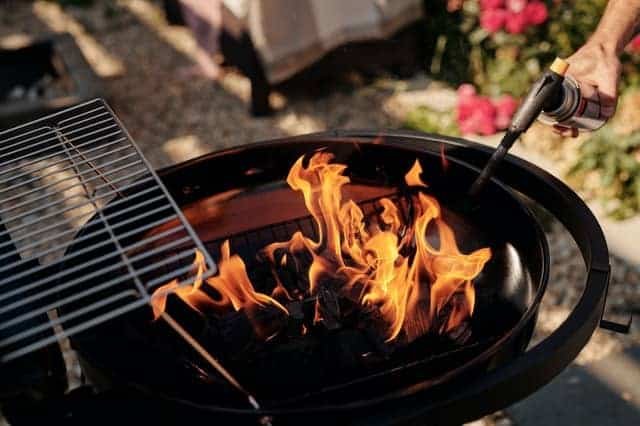
Preparing food on an outdoor grill. Some campsites will only allow barbeque grills. If you do not have one or don’t want to bring one, you may want to prepare your meals outside on the picnic table (to protect the table from dirt and grime), or in a pit fire pit.
Equipment such as power tools, propane tanks, and gas containers, along with other items such as tents and specialized camping gear may be required for your family’s specific needs and skill level. If this is the case, carefully consider these factors to select a campsite that best suits your needs.
Some important things to remember
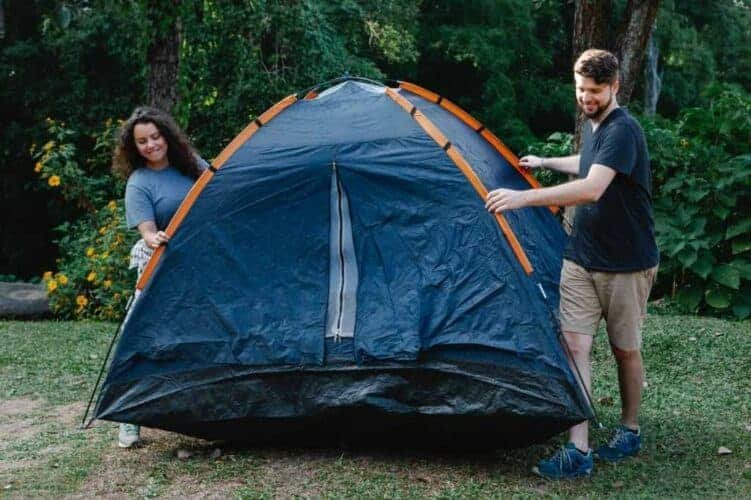
Make sure to choose a campsite that is easily accessible to your vehicle and equipment. This will help if you have to return to the campsite in the event of an emergency.
Water: Unless you plan on drinking untreated water from streams or lakes, you must bring plenty of bottled water with you on your trip. Bottled water is cheaper at campgrounds than buying it at a grocery store, but remember that when camping, tap water may be contaminated by wildlife such as squirrels or raccoons
Pets: If you plan on bringing along your pets, make sure they are well behaved and can easily fit inside a small carrier or cage. It’s important to make sure your pet is well trained and does not bark too much when you are hiking to your campsite, or when you need to be quiet at night.
Activities for large families on a camping trip
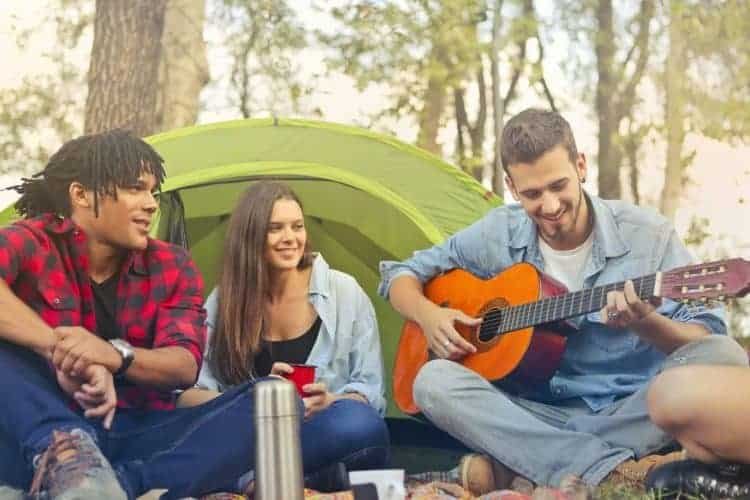
The best thing that can happen when you’re camping is spending time with your family and friends. Activities such as swimming in a natural scenic lake, playing games like capture the flag, and listening to good music while sitting around the fire are only some of the things that make camping fun for everyone.
After you’ve chosen your camping destination, plan ahead of time what activities you will be doing with everyone. Don’t forget to take advantage of all the natural beauty around you by hiking through beautiful scenery or going for a swim in a natural scenic lake. If possible, go fishing or maybe even take a hike to see wildlife with your young children.
If you’re bringing any type of board game with you on camp, it’s important to bring enough for everyone to play at one time. Many board games can be played with up to 10 people, which is perfect if most of your group is adults or teenagers.
We hope you like our guide and your entire family will enjoy their next camping trip. If you have any suggestions or questions, feel free to ask us in the comment section below.
Happy Camping!

